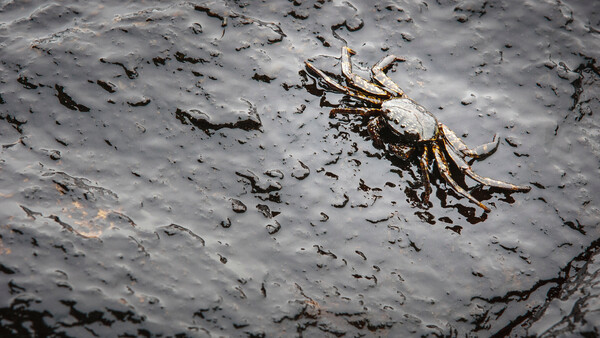Putting People First: Safeguarding our Waters with Science and the Clean Water Act
4:00 pm US Eastern Time
Slides & Resources
More Harm than Good: New Science, Legal Actions, and Policy on Oil Spill Dispersants. CHE Alaska webinar, 2020.

You can watch the recording of this webinar here.
US EPA has not updated the National Contingency Plan (NCP) for oil spills since the 1990s, despite a mandate in the Clean Water Act to regularly update the Plan to reflect modern scientific advancements.
Prompted by a lawsuit filed by Alaska Community Action on Toxics (ACAT), Earth Island Institute, the ALERT Project, Cook Inletkeeper, Rosemary Ahtuangaruak and others, EPA was recently compelled to update its outdated regulations governing the use of chemical products in oil spill responses. The court ordered EPA to revisit its decades-old NCP for oil spills to incorporate new scientific evidence about the toxicity and effectiveness of oil dispersants.
Dispersants are petroleum-based chemicals used to break up oil during oil spills. They were used in massive quantities during the Exxon Valdez and BP disasters. These chemicals make oil more toxic and are linked with long term health harms including respiratory, neurological, and cardiovascular effects.
In this webinar, CHE-Alaska was joined by plaintiffs Rosemary Ahtuangaruak, Dr. Pam Miller, and Dr. Riki Ott to discuss the newly announced revisions. These include improved testing of the toxicity of dispersants used on spills before being listed in the NCP; public notification when chemical agents are to be used in emergencies; greater disclosure of data relevant to chemical constituents of dispersants, and more.
Featured Speakers
.png) Pam Miller, PhD, the founder and Executive Director of ACAT since 1997, brings more than 35 years of research, education, and advocacy experience to her present work. In 2016, Pam was elected as Co-Chair of the International Pollutants Elimination Network (IPEN), a coalition of more than 600 environmental health and justice organizations working in 124 countries.
Pam Miller, PhD, the founder and Executive Director of ACAT since 1997, brings more than 35 years of research, education, and advocacy experience to her present work. In 2016, Pam was elected as Co-Chair of the International Pollutants Elimination Network (IPEN), a coalition of more than 600 environmental health and justice organizations working in 124 countries.
Riki Ott, PhD is a marine toxicologist and activist. After graduating with a doctorate in sedimentary toxicology, Ott moved to Alaska and started a fishing business. Following the devastating Exxon Valdez oil spill, which severely impacted the local fishing economy, she became an environmental activist.
Rosemary Ahtuangaruak is an Iñupiaq environmental activist living in Nuiqsut. Her work focuses on addressing environmental health impacts resulting from heavy industrialization on the North Slope, including air pollution connected to oil production. She is also involved in local politics and education.
This webinar was hosted by the CHE-Alaska Partnership, which is coordinated by Alaska Community Action on Toxics (ACAT). Driven by a core belief in environmental justice, ACAT empowers communities to eliminate exposure to toxics through collaborative research, shared science, education, organizing, and advocacy.


